How Much Does New or Used Excavator Cost?
 Excavator Famous Brands
Excavator Famous BrandsEvery construction work needs one—excavators are critical pieces of equipment to execute large-scale digging and carry out construction works. With this equipment, your work is not only quicker but also more straightforward.
So, is an excavator a must-have piece of equipment? Usually, all construction projects involve a lot of digging, and you will need excavators at some point in the project’s lifetime. Besides making the work much doable, it will help you save a lot of money and time. But, how much does an excavator cost?
How Much Does a New Excavator Cost?
Most new full-size excavators cost between $100,000 to $500,000 and higher. The prices of new excavators vary depending on several aspects, such as the brand and performance. Other factors, such as the size, features, and attachments included, will influence the price of a new excavator.

- If you are going for small excavators (weight between ten and 15 tons), you will pay between $75,000 and $150,000, although this will also depend on the accessories you want.
- A mid-sized excavator, one that weighs between 15 and 20 metric tons, will cost you between $100,000 and $200,000, and sometimes more.
- For a full-size excavator, one that weighs between 30 and 40 tons, be ready to spend from $150,000 to $500,000.
New Excavator Pros and Cons
New excavators have numerous benefits. First, they come with maximum power, top efficiency, and better fuel consumption. However, these machines are pretty expensive to purchase.
How Much Does a Used Excavator Cost?
There is no denying that excavators are costly, and that’s why it is advisable to consider the used option.
Most used excavators are available on a discount basis, from 25 to 50% of the original cost. The majority of new excavators range from $100,000 to $500,000; so used ones will cost between $50,000 and $250,000.
The number of hours worked also influences the cost of used excavators.
- With 2,500 hours and five years of use, a medium-sized excavator would cost around $50,000 and $100,000.
- If you opt for a two-year-old mid-sized excavator, you will pay from $75,000 to $125,000 depending on its condition.
Another aspect that will dictate the price of used excavators is the number of hours logged. For instance, the cost of a ten-year-old Cat 345B logged for 4,000 hours might cost around $200,000. If the same machine has over 10,000 hours of use, the price will reduce significantly to $75,000 and $125,000.
Used Excavator Pros and Cons
The advantage of buying a used excavator is that it is easy to find one that is within your strained budget. However, getting a used excavator is also disadvantageous in a way. For instance, the performance and efficiency of a used excavator cannot match that of a new one. Secondly, used excavators will attract a high maintenance cost.
Excavators Overview
Excavators, also referred to as backhoes, are standard earthmoving vehicles featuring movable tracks, a rotating cab, an arm, and a bucket.
Mini, Full-sized, Large
1. Mini Excavator Price
Mini excavators, also named compact track hoes, are included in the earth-moving equipment lineup of all giant brands, like Cat, JCB, Komatsu, John Deerer, Volvo, Hyundai, Hitachi, Case, Takeuchi.
So far, there has been no consensus about what size can be considered as mini. The more unanimous opinion currently is that mini diggers (including compact ones) have an operating weight under 10 metric tons. The bucket can always be replaced with other attachments to tackle any job, so we don't take bucket sizes or digging depth as a criterion like some others do.
Here is a price guide for buying branded mini excavators.
- Mini excavators with operating weight under 4 tons cost somewhere from $20,000 to $40,000.
- Mini excavators with operating weight between 4 tons and 8 tons are sold for about $60,000.
- Mini excavators with operating weight between 8 tons and 10 tons will cost you less than $90,000.
2. Full-sized Excavator Price
Full-sized, also called standard excavating equipment, are the mainstream on the market, making up the largest proportion. They are also the ones most common to see on construction sites, operating weight of which falls into the range of 10 tons to 45 tons.
Based on our analysis of customs data for the past two years, we can easily conclude that the prices of full size diggers concentrate massively between $100,000 and $300,000, taking up 80%, and the rest scattered between $300,000 and $500,000.
Customs data shows price conditions of full size excavators as follows.
- Full size excavators with engine power between 100HP and 200HP were sold for $80,000-$180,000.
- Full size excavators with engine power between 230HP and 400HP go with the prices within $350,000.
- Full size excavators with engine power larger than 400HP and high-level configurations have the price reached $500,000 or more.
3. Large Excavator Price
The larger excavators are appliable to large construction and demolition projects that require maximum power and digging capacity.
It is generally acknowledged that those with operating weights more than 45 tons can be called large track hoes. Those mostly seen in special application scenes like mining come with astounding operating weight, the largest of which reaches 1,000 tons or more. So you can see the range of large track hoes is also large. The large ones for sale cost more than $500,000 according to the data of 2020 and 2021. Customs data shows one Liebherr super-large track hoe exported from France to Chile cost about $6,756,300. What a stunning price!
Want to know the price details of one certain size excavator of any well-known brand? Contact us by email or phone, and we will reply to you with full readiness.
Top Brand Excavator Prices
We keep our eyes on the top brands, including Caterpillar, Hitachi, Volvo, Hyundai, Komatsu, Liebherr, John Deere, Case, SANY. In order to shed light on how the prices are influenced by the brands, we still resort to the customs data. We here choose South America and Asia as research objects because the excavator importing data of the countries in these areas is quite representative. Plus, we narrow the range down to full-size diggers and pick up the most hot-selling models for each brand.
The FOB prices of hot-selling top brand excavators are shown in one of the above tables.
Excavator Prices in Different Countries
Geographical factor seems to play an insignificant role in the price of the excavating equipment, yet it is not true. Price differences between regions appear to be larger than you thought. What's more, the trend in one area could be contagious, and it could prevail in the whole country or the region in a short period of time.
For instance, the buyers from Pakistan evidently have a preference for Korean brands or manufacturers these years. As our data suggest, nearly four out of five diggers the Pakistani customers purchased in the past two years came from Korea. Doosan, a famous Korean local brand, takes a great share, followed by Volvo diggers manufactured by a Korean company. Interestingly enough, second-hand track hoes they bought occupied ninety percent, with prices refrained within $20,000. Whereas Sri Lankan buyers prefer Japanese brands like Yanmar, Kobelco, Komatsu, Mitsubishi, Sumitomo, Hitachi, which account for more than 90%. They bought used diggers of these brands for less than $10,000 on average.
Other Factors That Can Affect Excavator's Total Purchase Cost
Buying a piece of equipment isn't only about paying the purchase price. You will have to spend some money on several other expenses as well. So it's definitely a good idea to consider these tiresome trifles before you make a decision. You should have a clue how they affect your overall purchase cost.
These costs will vary from one machine to another.
1. Transaction fee
Usually, when you buy heavy equipment, you aways need to pay a portion of the price to the manufacturer or distributor. This fee is usually 10% of the product price. However, in some cases, you don't have to pay the money at all. Another point is that the transaction fee rate is based on the purchase price of the machine. Therefore, before you make a transaction, please make sure you understand how much the transaction fee is.
2. Taxes
Taxes must also be factored in when buying. Sales tax varies according to your local regulations, so it is necessary to clarify the policy regarding additional sales tax rates. You ought to take it seriously because it can easily add thousands of dollars to the total cost.
3. Transport
How do you transport the excavator you purchased from the port or somewhere in your country/region to home or to the job site? Most governments do not allow excavators to drive on highways, let alone long distances on highways. If you do not have a large enough truck to safely transport the excavator on public roads, you must take the price of hiring a suitable truck and driver into consideration.
This expense may be much more than you thought before, especially when you have to transport it from the seaport to your location. This is all your business and has nothing to do with the excavator manufacturer or supplier. So you should calculate this expense in advance when calculating the overall purchase cost.
4. Financing
We recommend that you finance your new excavator because it can help you save cash and you can use this cash for other business needs. Most companies and distributors offer financing options to make purchases more affordable. If not, you can apply for a loan from a bank or financial company. The interest rates of different financial institutions vary greatly, and you can choose one according to your credit and asset status.
Before you make a purchase plan, you should also consider this cost. This is particularly suitable for buying a new track hoe. In some cases, it also applies to second-hand track hoe.
There are some other factors that do have an impact on the total cost, such as insurance, but most of them are controllable, and you can evaluate their necessity and potential return before you make the all-embracing decision to buy excavators. Be aware. The truth that devil is in the detail also applies here.
FAQs
1. What is the price status of excavators based on different application scenarios?
Roughly speaking, diggers can apply to 3 major application scenes: mining, construction, and general use. The diggers to be deployed for mining tends to cost more now that the working environment, the nature of digging objects, and the project scale are much harsher and larger than the common road, dam, bridge construction. Some construction projects require specially customized excavators, and they are less costly than mining-used ones but more expensive than others.
2. What brand of excavator is the best?
The most cost-effective is the most suitable, so we advise that you take cost-effectiveness, not brand, as the top priority. Combined with the local reality, considering the fuel consumption, performance, quality, and working efficiency, you can find the most appropriate excavating equipment for yourself.
3. How to avoid buying a refurbished excavator for an extortionate price?
Through careful inspection. Firstly, observe the paint on the whole digger. If the entire body is repainted, you need to be careful. Next, look at the large and small arms. If both of them are sprayed with new paint, the digger may be welded after cracking. Then, inspect the engine. Observe the paint color and screws on the engine for the overhauled engine often have a large area of scratches. Open the engine cover and check whether there is dense smoke from the exhaust pipe. If so, it means that the piston ring has been replaced recently. Finally, when inspecting the crawler and chassis, see if the surface is severely worn.
Excavators Overview
Excavators, also referred to as backhoes, are standard earthmoving vehicles featuring movable tracks, a rotating cab, an arm, and a bucket.
These elements offer excellent digging power and mobility, making it easy for you to carry out various functions, including excavating, lifting away waste, breaking holes, and digging trenches.
Excavators come in different types and sizes. Some large excavators feature a variety of tools for heavy-duty projects and smaller machines for handling drilling and digging functions.
Common excavators include long-reach excavators, skid steer, suction excavators, dragline excavators, and crawlers. It is advisable to be careful of your choices when renting or buying an excavator with all these varieties.
Common Uses
Excavators are commonly used for various industrial and contractor needs.
In small housing projects, excavators are used for cut and fill tasks. They are also widely used in marine structural works, especially in the placement of large rocks and armors.
In the case of large construction sites, these machines are used for excavation, moving construction materials, removing construction waste, among other tasks.
Often, how and where you use a given excavator will depend on various factors, including the excavator’s purpose, brand, and type.
Full-Size vs. Mini-Excavators
Excavators are available in different configurations, all to meet diverse project needs.Some excavators are designed for heavy-duty tasks, while others are designed for small jobs, such as efficient trenching and digging or precise soil excavation. Whether you need a full-size excavator or a mini one will depend on the task at hand.Let’s dive into each one of these categories to understand them much better.
Mini-Excavators
Mini-excavators are differentiated by their weight. Any excavator that weighs less than seven metric tons is considered a mini-excavator.
These types of excavators, also known as compact excavators, are ideal for smaller job sites. This is because they can maneuver small spaces, especially during landscaping jobs like digging trenches for piping.
Another significant feature of a mini-excavator is the zero or near-zero tail swing. This factor makes operating the excavator between structures and around buildings easy and comfortable without worrying about destruction.
If your project is at a site with numerous underground gas lines and pipes, you will be more safe and successful using a mini-excavator than large digging backhoes.
Full-Size Excavators
This category includes excavators weighing between seven to 45 metric tons. When you have a commercial construction project, these are the types of excavators to consider.
These excavators come with excellent hauling capacity and optimal power to deal with any demanding construction tasks. The majority of full-size excavators consist of various work tools that can be used in different projects.
Just like the mini-excavators, full-size excavators are easy to work with, guaranteeing improved productivity. However, they are not the best choices when working in a tight site—their tail swing, reach, and size can interfere with and damage nearby structures.
Brands
When choosing the most suitable excavator for your project, it is essential to consider the quality and reputation of the brand you are getting, regardless of the size.
When trenching, dredging, excavation work, earthmoving, or demolition tasks are involved, it calls for an excavator brand designed for peak performance and efficient work.
So, what brands of excavators are in the market? Here are some of the top brands of excavators you can consider in your next project.
Caterpillar Excavators
The odds are you have seen or even used a Caterpillar excavator once. This brand is very popular. It is considered one of the most notable excavator brands.
One of the reasons is its new additions in tech, like air conditioning and smartphone connectivity. What’s more, this brand boasts the latest safety features, durability, and ease of operation.
Being among the pioneers in the industry, the Caterpillar excavator brand has crafted a name for itself as one of the best choices for heavy lifting.
Komatsu Excavators
The Komatsu brand of excavators stands out for several reasons, including fuel efficiency, reliability, and high productivity. This brand is known for excavator types that require low upkeep and little maintenance, such as the PC200.
The Komatsu brand of excavators has had some notable construction innovations in recent years. For instance, Komatsu excavators embrace various technologies, including the Komatrax and Intelligent Machine Control and innovative construction technology. All these innovations are aimed at boosting the productivity and efficiency of the machines.
Case Excavators
If you are looking for control, durability, comfort, and power, the Case brand of excavators is the brand for you. The manufacturer has an extensive product line ideal for numerous types of work, including all earthmoving needs. One of the brand’s notable mid-range excavators is the versatile CX210C.
Volvo Excavators
Unmistakable durability and control, superior comfort, power, and fuel efficiency best define the Volvo brand of excavators. Volvo is one of the leading brands of excavators that believe in people empowerment, innovation, and sustainability.
JCB Excavators
JCB brand offers a wide range of impressive excavators. This brand is known for its excavators that have incredible power. This brand’s top-level efficiency and high-performance abilities will guarantee you ultimate productivity, whether handling a small or large-scale construction project.
Additional Accessories for Excavators and Cost
Excavators, regardless of the size or type, come with additional accessories. The most common ones include the augers, thumbs, buckets, compactors, couplers, grapples, hammers, and rippers. Each of these attachments has an additional cost.
Augers
Augers are used when dealing with tree plantings, shrubs, footings, and for digging post-holes. You are likely to spend between $1,000 and $3,000 for an auger, although the brand and type of excavator may influence this.
Buckets
These are the digging attachments that come with several teeth. Usually, the buckets are fixed on the excavator’s arm. You will need various bucket types, depending on the task at hand.
The buckets vary in terms of width and model. You will pay around $1,400 for 24”, $1,600 for 30”, and $1,800 for 36” for buckets in width.
Compactors
Compactors are designed to perform all forms of compaction operations. According to the task you have, you may need compaction wheels, vibratory drum compactors, or vibratory plate compactors.
Depending on the size, you should be ready to spend from around $3,000 to $6,000.
Couplers – Excavators
Excavator quick coupler system is necessary to help you change work tools easily and faster. You can choose between the hydraulic and the spring-loaded couplers. If you opt for the spring-loaded quick couplers, you should be ready to spend from $225 to $2,500. For the hydraulic one, the price range is between $5,700 and $6,700.
Grapples
If your current project involves handling materials, you will need grapples for your excavator. Grapples are used for picking, moving, and sorting materials. The types of grapples you need will depend on your project. For example, land clearing, forestry, scrap, rock handling, and demolition will require you to use grapples meant for specific tasks. Grapples cost anywhere from $6,000 and above.
Rakes
When you have a project that involves site preparation, brush piling, and land clearing, you will need rakes to complete the tasks. With the right excavator rake, you will clear a vast land fast. You will spend around $780 to $800 for a piece of excavator rake.
Multi-Processors
Multiprocessors are critical multi-function tools that increase the versatility of the excavator through interchangeable jaws. The cost of excavator multi-purpose processors starts from $1,000.
Hammers
Excavator hammers are accessories you attach to your excavator when breaking down complex materials, rock, and concrete. The machine you are using should inform your choice of the size of the hammer you need. Excavator hammers range from $4,000 to $8,500.
Rippers
Rippers are essential accessories you will need alongside your excavator during any construction project. They are great for excavation and stripping open-pits. These attachments come in different sizes, from 19 inches to as large as 51 inches. Depending on the size of the excavator ripper you need, you can spend anywhere from $2,000 and above.
Thumbs
Excavator’s thumbs come in different sizes. In most cases, the thumb size you need will depend on the machine size and type you already have. For instance, an Mt618 mini-excavator thumb is designed to fit in a 490 to 4,000 lb machine. The cost also differs depending on the model and size of the thumb. Nevertheless, it would help if you were prepared to spend as low as $700 for a thumb for a mini-excavator.
FAQs
Should I buy a new or used excavator?
Whether to buy a used or a new excavator is a personal decision. However, in most cases, this decision is influenced by your budget. A new excavator is expensive. A used excavator is most preferred when you are strained budget-wise.
When should I rent an excavator?
Renting an excavator is a recommendable way to get access and use an excavator fast for your project. You should rent an excavator if you have a short-term project or when you need it for single use.
What should I consider before buying a mini-excavator?
A mini-excavator isn’t something you can wake up one day and buy. It would help if you were careful when making your purchase decisions.
Before buying a mini-excavator, the most important aspects to consider are the attachments, versatility, transportation and security, and reliability.
When you consider all these, you can be assured of an excavator that can handle all your project needs satisfactorily.


 Whatsapp
Whatsapp Message
Message USED
USED  CASES
CASES 
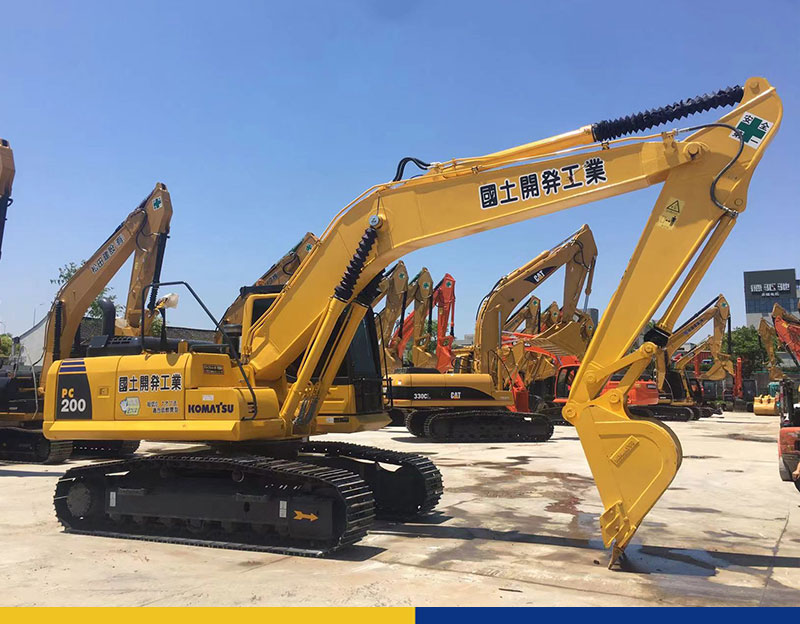
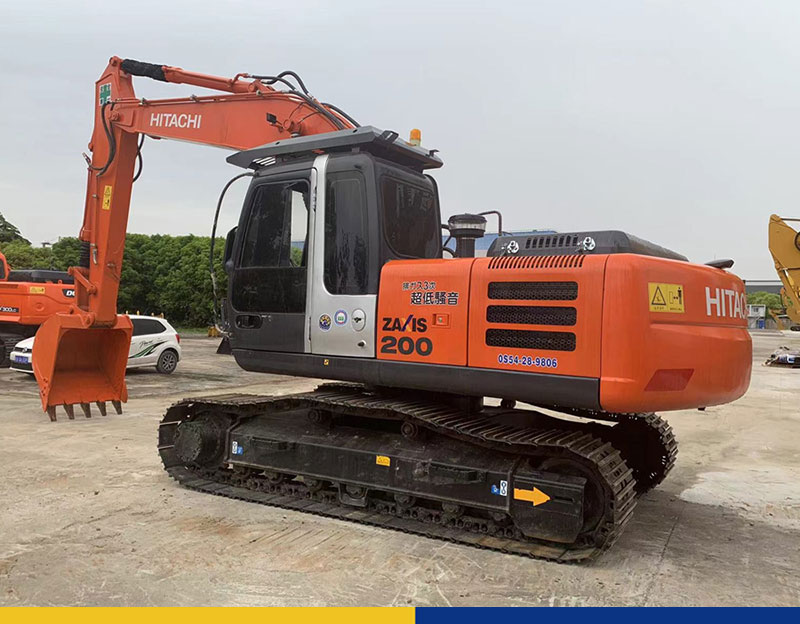
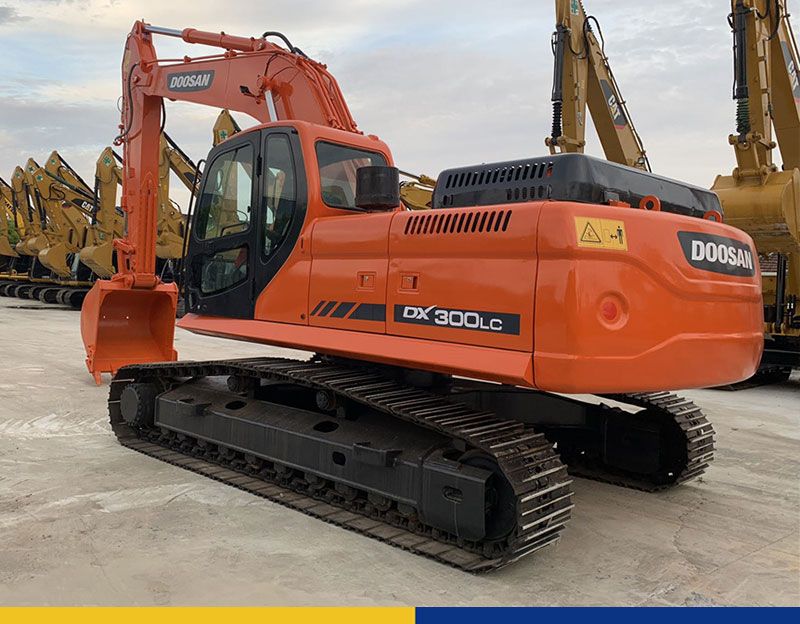
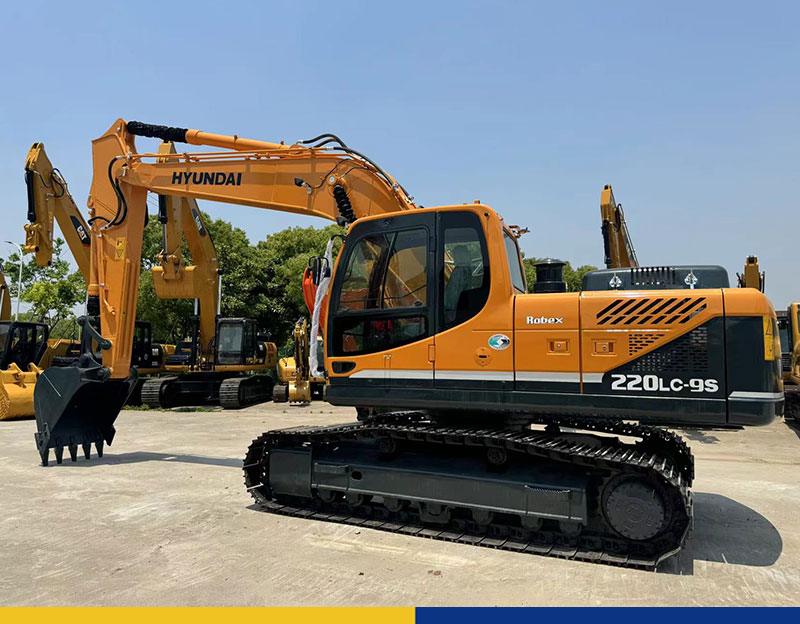
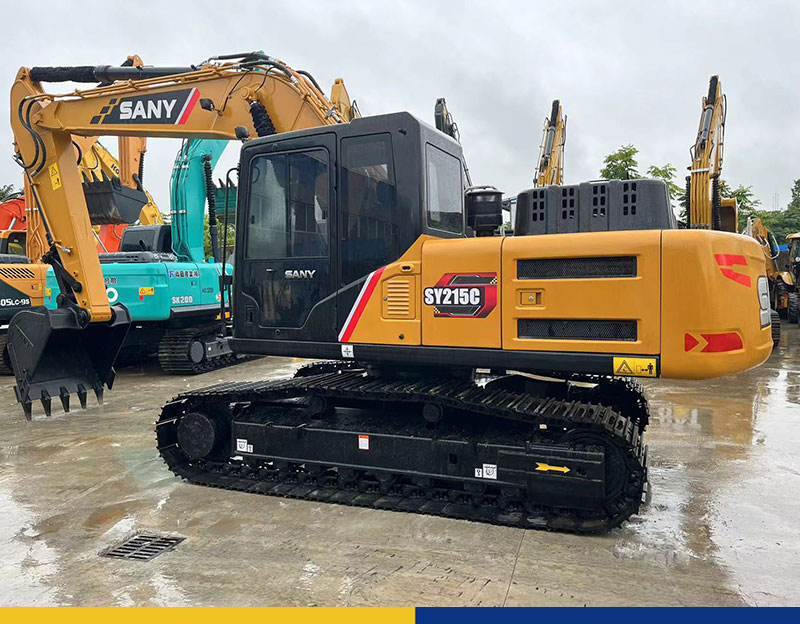
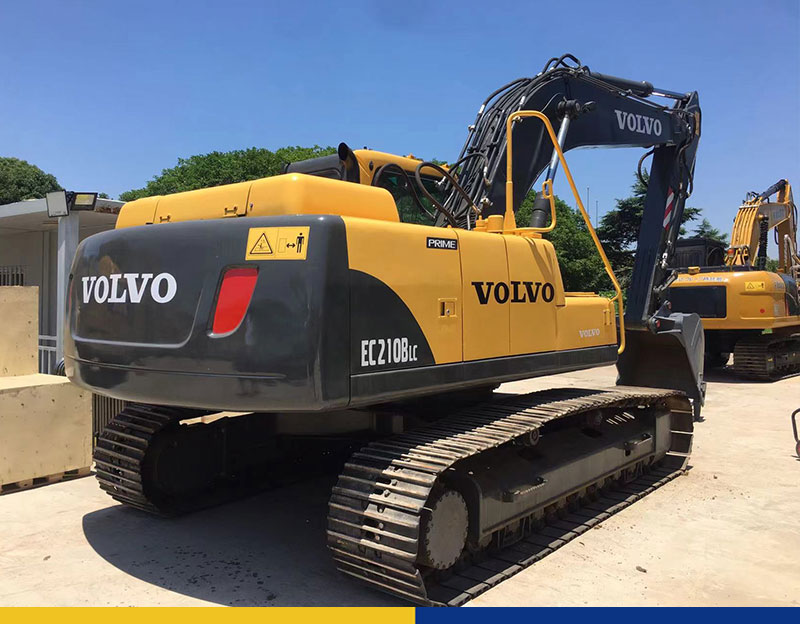
 Earthmoving Machinery
Earthmoving Machinery Road Machinery
Road Machinery Lifting Machinery
Lifting Machinery Truck Machinery
Truck Machinery Mining Machinery
Mining Machinery Logistics Machinery
Logistics Machinery Agriculture Machinery
Agriculture Machinery Concrete Machinery
Concrete Machinery Drilling Machinery
Drilling Machinery CONTACT US
CONTACT US





















